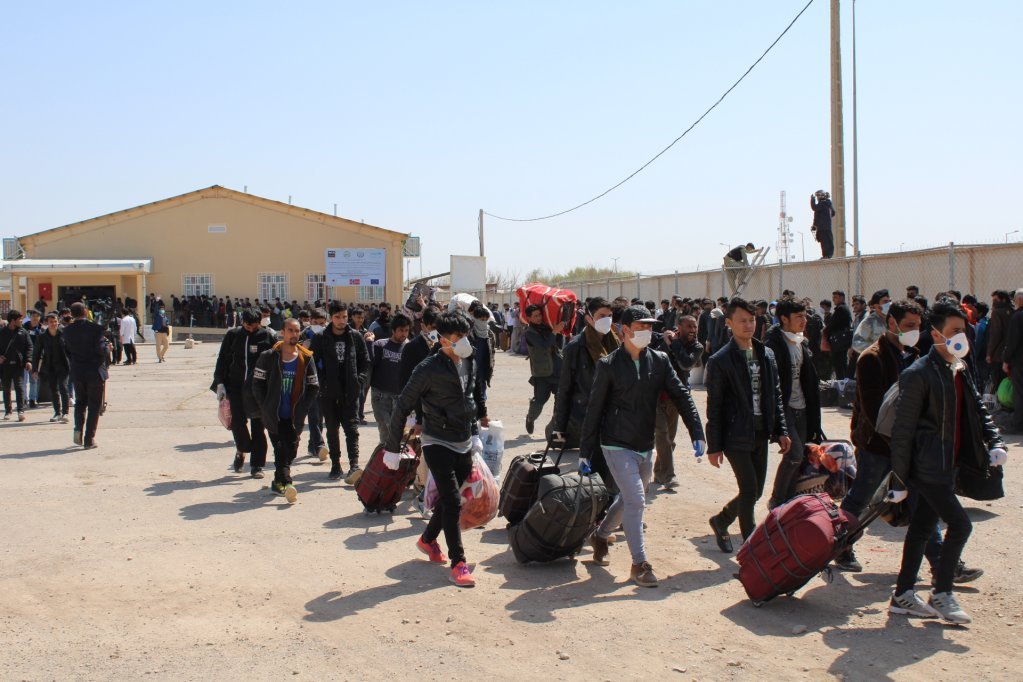DID Press: Incomplete or insufficient implementation of the general amnesty decree undermines public trust in the current government. Returned refugees, especially those who worked under the previous government, expect to enjoy security and peace under this decree.

The massive return of Afghanistan’s refugees in recent months and years, especially after the Taliban regained control over Afghanistan, has become a sensitive issue. A recent report by the United Nations Assistance Mission in Afghanistan (UNAMA) shows serious concerns about the situation of returned refugees.
The report claims that some of these people have faced human rights violations, including torture, arbitrary detention, and verbal threats. These claims come at a time when the Taliban have repeatedly emphasized the implementation of the general amnesty decree.
In a report released on Thursday,July 24, UNAMA said that returnees, especially women, girls, former government employees, security forces, civil society activists and journalists, are at risk of reprisals. The report, based on interviews with 49 returnees between May and December 2024, reports serious human rights violations against them. This has raised concerns among the refugee communities and international institutions.
In contrast, the authorities of the caretaker government have rejected such claims, deeming them “propaganda”. Hamdullah Fitrat, deputy spokesman for the Kabul administration, stressed Friday, July 25, that the general amnesty decree covers all returnees and that no reprisals have been carried out against them.
He assured that if violations occur, the government will punish the perpetrators. This stance reflects the Taliban’s attempt to gain public trust, but the contradictions with international reports highlight the gap between the official narrative and the realities on the ground.
The incomplete or inadequate implementation of the amnesty decree undermines public trust in the current government. Returnees, especially those who worked under the previous government, expect to enjoy security and peace under the decree. However, reports of torture and arbitrary detention by some international organizations, including UNAMA, indicate a gap between the Taliban’s declared commitments and their actual performance. This gap could lead to wider distrust at home and abroad.
The government must take concrete steps to gain public trust and consolidate its position. First, it is necessary to establish a transparent and independent mechanism to monitor the implementation of the amnesty decree. This mechanism should include investigating complaints from returnees and punishing human rights violators. Without such a system, the Taliban’s claims of non-retaliation will remain unfounded.
Second, the Taliban should work more closely with international institutions, including UNAMA. Rather than dismissing their reports, constructive dialogue can help identify and address problems. Working with international organizations will not only improve the human rights situation but also strengthen the Taliban’s standing in the international community. This is especially important given Afghanistan’s dependence on international aid.
In addition, the Taliban should pay special attention to the specific needs of vulnerable groups. These groups, identified in the UNAMA report as the main victims of human rights violations, are in need of social and economic support. Establishing support programs such as access to education, employment, and health services can foster a sense of security and patriotism among them.
Another challenge facing the Taliban is managing public expectations at home and abroad. The amnesty announcement was a positive step, but its incomplete implementation could lead to pessimism. The Taliban must demonstrate that they are committed to their commitments through practical measures, including punishing perpetrators and reporting on progress transparently.
This will help to alleviate the concerns of refugees and gain the trust of the international community.
Overall, the actual implementation of the amnesty decree will not only benefit the returnees, but also help to strengthen the foundations of Taliban rule. Violating these commitments, in addition to violating international law and Islamic principles, will have negative consequences for Afghanistan’s internal stability and foreign relations. Therefore, in the current difficult circumstances, the Taliban should welcome returnees with open arms and strengthen the sense of patriotism among all citizens by creating a safe and just environment.
Author: Ahmad Zaki Naveesa
DID Press